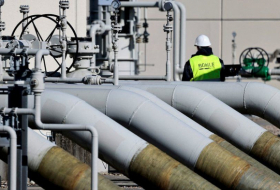According to Papaleksandri, energy sectors hinges on hard fossil fuels for electricity production, such as coal and lignite.
“Trans-Adriatic Pipeline will help Europe shift to the economy with low carbon-dioxide share; it will diversify energy supply sources, strengthen European competition and improve European gas connection. We expect demand for natural gas to increase, since it replaces coal and wood,” she added, Trend reports citing Independent Balkan News Agency.
TAP project, worth 4.5 billion euros, is one of the priority energy projects for the European Union (EU). The project envisages transportation of gas from Azerbaijan's Shah Deniz Stage 2 to the EU countries.
Connecting with the Trans Anatolian Pipeline (TANAP) at the Greek-Turkish border, TAP will cross Northern Greece, Albania and the Adriatic Sea before coming ashore in Southern Italy to connect to the Italian natural gas network.
The project is currently in its construction phase, which started in 2016.
Once built, TAP will offer a direct and cost-effective transportation route opening up the vital Southern Gas Corridor, a 3,500-kilometer long gas value chain stretching from the Caspian Sea to Europe.
TAP shareholders include BP (20 percent), SOCAR (20 percent), Snam S.p.A. (20 percent), Fluxys (19 percent), Enagás (16 percent) and Axpo (5 percent).
More about: #TAP








-1525430851.jpg)







































